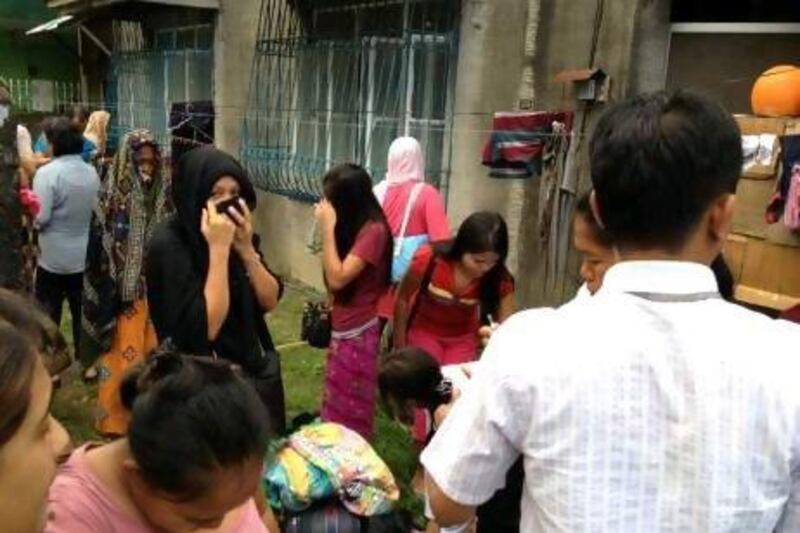ABU DHABI // Dubai remains a major gateway for the movement of thousands of blue-collar workers to Syria, despite attempts by the Philippine government to stop them, experts say.
About 16,000 Filipinos were thought to have gone to work in Syria in the past four years. But of those, 1,000 were hired through the Philippine overseas employment administration (Poea), the only legal route.
The rest went illegally through unlicensed agencies or consultancies that posed as recruitment agencies in the Philippines.
That, says Emmanuel Geslani, an overseas recruitment consultant in Manila, means there is little the Philippine government can do to protect their welfare and rights.
Nicon Fameronag, a spokesman for Manila's labour department, said Dubai, Kuala Lumpur, Singapore and Hong Kong were major transit points for illegal recruiters sending workers to countries where the Philippines bans their deployment.
The labour department has been monitoring the travels of Filipino workers through its regional anti-illegal recruitment task forces, Poea and the Philippine overseas labour offices, including the one in Dubai.
On Monday, the Inter-Agency Council Against Trafficking (Iacat) ordered the arrest of an illegal recruiter after rescuing 22 Filipinas from a house in Manila. At least two were apparently due to travel to Syria via Dubai.
"According to the caretaker of the house where the women were staying, her boss has contacts in Dubai that process women for entry to Syria," said Jejomar Binay, the vice president of the Philippines and chairman emeritus of the Iacat.
Mr Famerong said the alleged illegal recruiter was now being held at the national bureau of investigation without bail.
Mr Binay warned unlicensed Philippines recruitment agencies not to take advantage of those desperate to gain employment abroad.
"We are now pushing for stiffer penalties for human-trafficking violations," he said. "We will aggressively pursue these groups and bring them before the courts."
Mr Binay called on local authorities and the public to assist Iacat by reporting suspicious activity.
Mr Geslani said that the majority of the 15,000 Filipinos in Syria travelled there through Dubai.
"Recruitment syndicates received them in Dubai and gave them entry visas and airline tickets to Syria."
Other workers are recruited legally through Poea for jobs in Dubai, but then illegally sent on to Damascus. Despite a ban imposed last year on moving to Syria for work, and efforts to bring those already there home, Filipinos continue to arrive in Damascus, Mr Geslani said.
In December, the government raised the crisis alert level for Syria to four from three, due to the worsening violence in the country. Level four triggers mandatory repatriation.
"Many of these workers refuse to leave Syria, claiming they work for rich employers, while others have said there were no jobs awaiting them back home," Mr Geslani said.
"Some employers who fled Syria are bringing with them their domestic helpers to Lebanon, Jordan or Iraq."
John Leonard Monterona, the regional co-ordinator for the expatriate rights group Migrante Middle East, said: "The illegal recruitment of Filipinos, particularly domestic workers, is a long-standing issue. It is rampant not only in Syria but in most Arab countries."
Mr Monterona said that in the past month at least 15 Filipinas arrived in Dubai, and at least 10 in Doha, who were due to be sent to Syria, Jordan and Lebanon.






